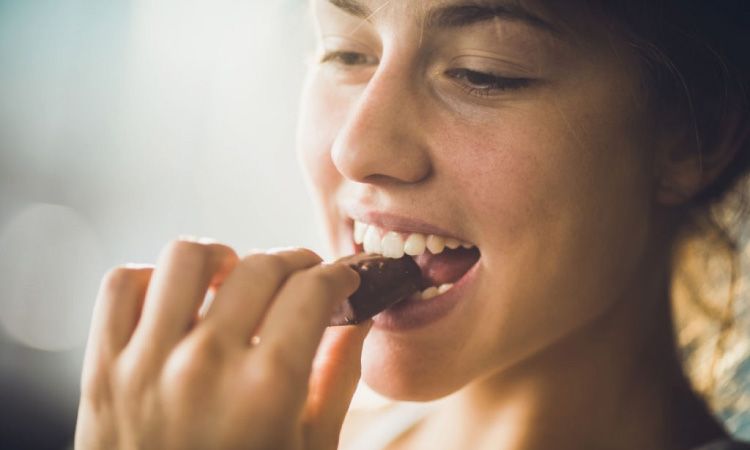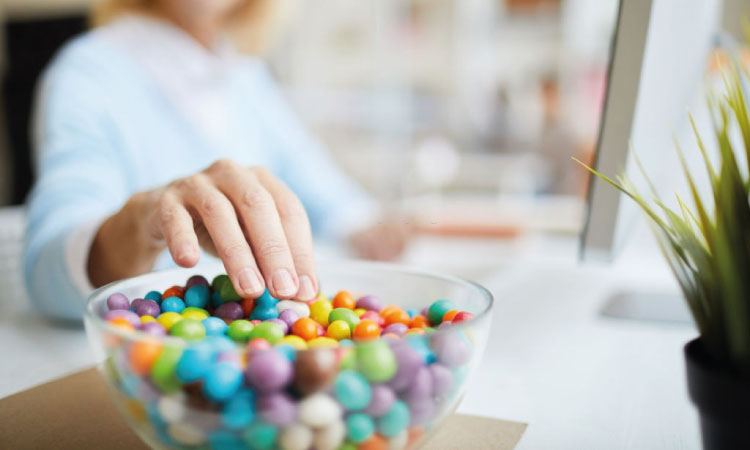A woman who has a sweet tooth will face problems during pregnancy since sugar is not healthy. During pregnancy, excess sugar can result in excess weight gain and tooth decay in women with gestational diabetes. Due to this, many expecting women consider sugar substitutes or artificial sweeteners during pregnancy.
Energy is more readily available from sugar. It is true. But it can also lead to health issues. As expecting women prone to gestational diabetes may want to consider artificial sweeteners, let us now study what artificial sweeteners are and other postulates associated with them.
What Are Artificial Sweeteners?
As the name indicates, artificial sweeteners are substitutes used instead of sugar for adding sweetness to beverages or food products. The next question to ponder is “Why can you have artificial sweeteners while pregnant” or “is it ok to use artificial sweeteners during pregnancy?” The artificial sweeteners are calorie-free and produced synthetically. These are also popular due to this trait. Since it is artificial, it becomes important to assess its safety to be consumed during pregnancy.

Artificial sweeteners are substitutes for regular sugar also known as sucrose. They are synthetic substitutes produced from natural sugar or herbs. They can be the one with calories, called nutritive or the one with no calories called the non-nutritive.
Nutritive sweetener
Nutritive sweeteners contain carbohydrates1. They add calories and have fewer vitamins and minerals. When used in moderation they are safe but it is important to watch out as they can lead unwanted complications due to excessive weight gain during pregnancy as well. It is not recommended for the ones with insulin resistance, diabetes, gestational diabetes, etc. They need to have it within limits.
Nutritive sweeteners include sucrose, fructose, dextrose, maltose, corn sugar, and honey. Sugar alcohols, including sorbitol, isomalt, mannitol, and xylitol hydrogenated starch, also fall into this category.
Non-nutritive sweetener
Unlike nutritive sweeteners, non-nutritive sweeteners have zero calories or very few calories. They can be used in both warm and cold beverages, as well as in baking. Because non-nutritive sweeteners are sweeter than sugar, they must be used in small amounts. The digestive system is not able to completely absorb them, so they provide fewer calories per gram than sugar2.
Non-nutritive sweeteners are added to the dish in minimal amounts to increase its sweetness. They are approved to be used for reducing calorie and dietetic foods. Few non-nutritive sweeteners are stevia, sucralose, aspartame, and saccharin.
Calculate Due Date With LMP
Related Reading: Sugarcane Juice During Pregnancy- Health Benefits And Precautions
Is It Safe To Use Artificial Sweeteners During Pregnancy?
After knowing that the use of artificial sweeteners, one more question that comes to mind is “Can I take artificial sweeteners during pregnancy?” Yes, artificial sweeteners are approved by the Food and Drug Administration (FDA) and are safe to be used while pregnant. This should be used in moderation and not in excess. It should be taken after consulting a doctor to check on the appropriate intake. Don’t take it as a replacement for the nutrients you need during pregnancy.
A few questions that arise in the minds of pregnant women will be “are artificial sweeteners dangerous during pregnancy”, is artificial sweetener bad during pregnancy? To answer these first we need to know which artificial sweeteners are good both for the mother and the baby3.
Which Artificial Sweeteners Are Safe During Pregnancy?

Even though artificial sweeteners are safe to be consumed during pregnancy, there are many available in the market. It thus becomes vital to assess which artificial sweeteners can be consumed at this time. Given below is a brief synopsis of the few sweeteners that are approved by the FDA and are good for health as well. It also explains the “use of artificial sweeteners during pregnancy” and the “safe artificial sweeteners during pregnancy”.
Sucralose (Splenda)
It is a sweetener that has no calories but is made from sugar and approved by the FDA as well. It can be used in different types of food starting from bakery items, fruit, and packed juices, baking products, beverages, coffee, tea products, sauces, toppings, confectionaries, syrups, etc. Consuming this sweetener is not harmful to blood sugar and considered safe for pregnancy4.
Xylitol
This sweetener is a sugar alcohol and is naturally found in many fruits as well as vegetables. It is usually found in candies, toothpaste, chewing gums, etc. It has a similar taste as that of natural sugar and is also declared safe for pregnancy. Experts suggest that it even reduces the plaque accumulation on the teeth, thereby, preventing tooth decay5.
Aspartame (Equal, NutraSweet, or Sugar twin)
This sweetener is a low-calorie one approved by FDA. It can usually be found in breakfast cereals, soft drinks, dairy products, desserts, puddings, drugs, chewing gums, etc. It is 200 times sweeter than natural sugar but safe for pregnancy. It is, however, not recommended if pregnant women have high phenylalanine levels in the blood6.
Acesulfame Potassium (Sunett or Sweet one)
Another non-caloric sweetener that FDA approves for pregnancy is to be used in foods. This can be added to frozen desserts, sugar-free- gelatin, baked food, soft drinks, and puddings. This one is also 200 times sweeter than sugar and safe to be consumed during pregnancy7.
Sorbitol
Sorbitol is a sweetener; at the same time, it is nutritive. It is widely used in the preparation of candies, ice creams, chewing gums, cookies, puddings, etc. While it is 60% as sweet as natural sugar, it is safe for use during pregnancy. During pregnancy, it is not harmful to the baby but excessive intake can result in gastric disorder, diarrhea, and even excessive weight gain8.
Related Reading: Eating Jaggery (Gur) During Pregnancy
Mannitol
It is sugar alcohol just like sorbitol and should be consumed in moderate quantities during pregnancy. Excess of this can lead to bloating, cramping, gastric disorders, and diarrhea9.
Which Artificial Sweeteners Are Unsafe During Pregnancy?

Just like the above-mentioned sweeteners are safe, there are yet many which are unsafe. For example, a common question is “Is stevia safe during pregnancy”. There are more sweeteners available in the market and some of the ones which are not safe to be consumed during pregnancy are:
Saccharin (Sweet and Low, Necta Sweet, and Sweet Twin)
This one is a no-calorie sweetener but not approved by the FDA. It is because it can increase the odds of developing bladder cancer. Recent studies show it can even pass through the placenta and accumulate in fetal tissues10.
Cyclamate
This is a non-nutritive one and is 30 times sweeter than natural sugar. Not enough data is available regarding its safety and for consumption during pregnancy11.
Rebaudioside A (Stevia)
This sweetener is obtained from South America and does not have technical approval from FDA. It is more a dietary supplement than a sweetener. No data is available regarding its safety or consumption during pregnancy12.
Thaumatin
Thaumatin is a sweet protein. This artificial sweetener is derived from a plant called Thaumatococcus Daniellii, which grows indigenously in West Africa. Besides adding flavor to foods, it is also used as an additive. Research on its safety in pregnancy is limited13.
Neotame
Neotame is a chemical derivative artificial sweetener. Like thaumatin, research on its safety in pregnancy is also limited. Hence it is best to stay away from it during pregnancy.
What Are The Benefits Of Artificial Sweeteners During Pregnancy?
Since the use of artificial sweeteners during pregnancy is recommended by doctors, it is important to check on the benefits that it has. Some of the benefits of artificial sweeteners are:
- They offer sweetness to the food just like the regular sugar
- They have almost nil calories and do not attribute to weight gain if consumed in moderation
- They are good for dental health and prevent tooth decay
- They help in managing gestational diabetes and keep sugar levels, blood pressure, and cardiac ailments in control.
Potential Side Effects Of Artificial Sweeteners During Pregnancy

If consumed in excess, artificial sweeteners may cause some harm during pregnancy. Some of the side effects are:
- If taken in excess, saccharin, sucralose, and aspartame can cause accumulation in the fetal tissue and cross the placenta and result in obesity in children
- If aspartame is over consumed it results in dizziness, headaches, slurred speech, nausea, confusion, etc
- Replacing artificial sweeteners with sugar is not successful in satiating sugar cravings and the craving for sweets or drinks rises to lead to the potential risk of unwanted weight gain
Related Reading: Is It Safe To Eat Cranberry During Pregnancy? Health Benefits And Risks
Thus, to avoid the side effects and enjoy the benefits, it is advisable to only take the artificial sweeteners during pregnancy which is approved by FDA. This should also be consumed in a moderate amount and not excess. It Is also recommended to consult a doctor before consuming artificial sweeteners during pregnancy. The most vital point is to follow healthy dietary habits and avoid artificial ones as much as one can.
FAQs
There are a few potential harms that do take place with the consumption of non-nutritive sweeteners that cannot be overlooked.
The consumption of artificial sweeteners during pregnancy does impact the brain as they can cross the blood-brain wall and also obstruct its functioning.
Consuming saccharin during pregnancy is deemed safe by the FDA yet it might increase the risk of increased bladder tumors.
In a few countries, this artificial sweetener is banned as well.
The most common artificial sweetener to be commonly used in food and drinks is Aspartame.
